Arts & Entertainment
Team Rayceen Productions celebrates 8th anniversary
Group members, supporters reflect on the past and look to future
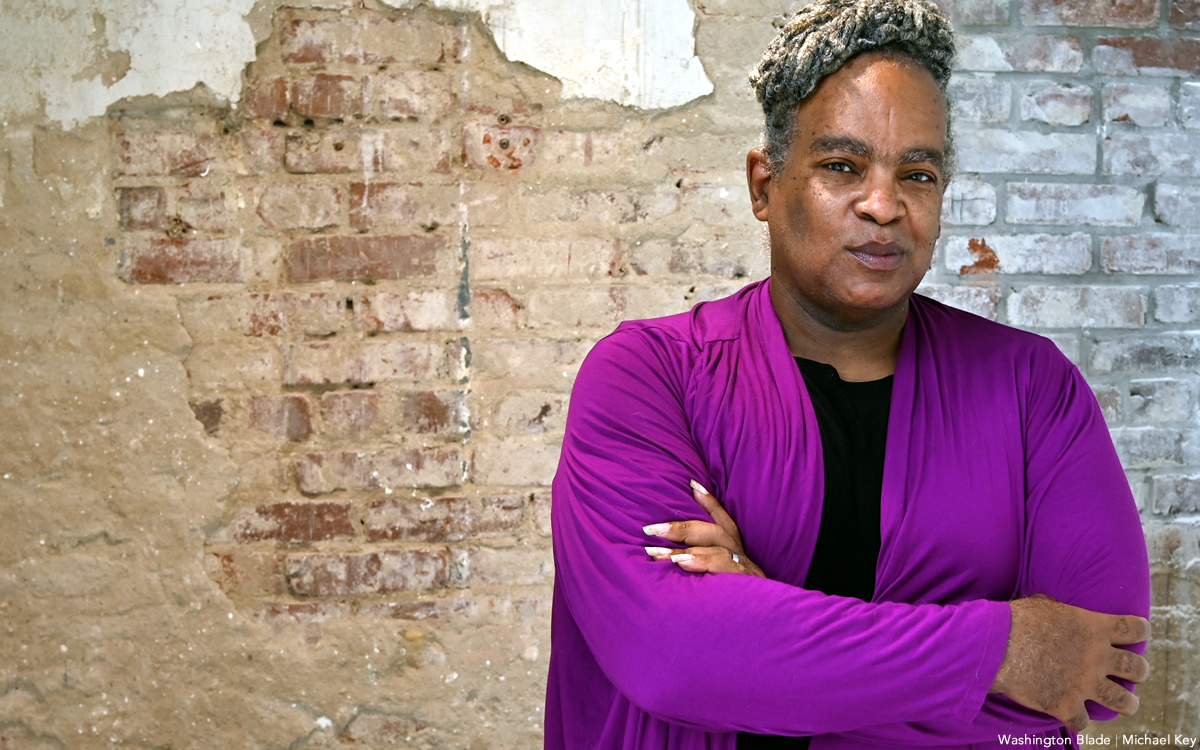
Team Rayceen Productions — which helps facilitate an array of local LGBTQ-centered programming, including live events, performances and partnerships from collaborators and Pride celebrations — is commemorating its eighth anniversary this month. Rayceen Pendarvis, the self-described “Queen of The Shameless Plug, the Empress of Pride and The Goddess of DC,” is a veteran emcee and lifelong Washingtonian. The team’s other members are Zar, creative director, producer and founder, Niqui, booking agent and brand manager, and Krylios, event host and co-emcee.
In honor of the group’s August anniversary, the Blade sat down with Team Rayceen Productions and some of its frequent collaborators to discuss the group’s history, significance, and future.
The central members of Team Rayceen Productions met its namesake at different times and places, and the group’s members have shifted over time before the current “core four” assembled. According to Pendarvis, the team’s mission arose from the queer spaces where its members made their introductions, since “we all met each other in wonderful safe spaces and safe places, and out of that rose that need to uplift, motivate and inspire the community on the next level.”
Niqui, who came to the team from “The Ask Rayceen Show,” said that working on the monthly event “was life changing and empowering for me personally, because seeing Rayceen living not just truthfully, but sharing wholeheartedly what makes her who she is, really helped to free my soul and my spirit.”
Krylios, the youngest member of Team Rayceen Productions, said that while he was not there for the group’s founding, its clear sense of purpose and familial warmth drew him in.
“One of the greatest core concepts of Team Rayceen is community, is family,” Krylios said. “As someone who was trying to find their way in not only a new space and a new community, but specifically the queer community in D.C., going to ‘The Ask Rayceen Show’ and becoming involved in Team Rayceen Productions was very important to me.”
For GiGi Holliday, a burlesque performer and regular guest on “The Ask Rayceen Show,” appearing at the event was a kind of “rite of passage” that quickly turned into an annual tradition.
“I felt like every year, I had to, in the sense of ‘I need to come home,’” Holliday said. “You have to have a family reunion once a year, right? That’s why I have always done it once a year and will continue to do so.”
Sylver Logan Sharp, a singer and longtime collaborator with Team Rayceen Production, emphasized Rayceen’s unique ability to foster people’s talents.
“The things I’m good at were nurtured, and they were cultivated, and they were honed, and they are still right now. Rayceen [does] that for the community — you and your entire team do the very same thing — you give people a platform. And nothing is more important right now than a safe place,” Sharp said. “You create that, and you also initiate inspiration in people that otherwise might not have it.”
Over and over, collaborators remarked on the group’s blend of familial warmth and comfort with the challenge to grow.
“Our gifts are called upon. When you join the family of Team Rayceen, you’re going to get called on, but whatever your gifts might be — whether people know about them or not — it’s a really great chance to just step up to the plate,” singer-songwriter Desiree Jordan said. “You become a better person as a result of being within this family and within this community.”
According to its members, the future of Team Rayceen Productions is bright. While the pandemic halted live performances and moved content creation online, Niqui shared that it was also an opportunity for the team to plan its next steps.
“Oddly enough, the pandemic caused us to really focus and think. When you’re doing, doing, doing, you don’t really have an opportunity to future-cast, and so those two years were a turbo boost for us because they forced us to have to say ‘Okay, how do we want to focus our energy, what changes do we want to see in the world?’ And the world was changing at the exact same time.”
Although “The Ask Rayceen Show” recently wrapped its 10th and final season, Zar said that the team’s horizons have always been broader than that monthly event.
“What we have done and continue to do is create safe spaces. We create spaces for healing and celebration… we create spaces for voter registration, for community organizations and entrepreneurs; we create intergenerational spaces,” Zar said. “We create diverse spaces which honor and respect Black LGBTQ people who have been centered in so much of what we’ve done from the beginning — so I think we’ve done a good job of both expanding our base and not forgetting how we got here.”
In the future, Team Rayceen Productions is looking to increase the scale and ambition of its creative projects and to reach a wider international audience. However, as they ramp up operations, Rayceen re-emphasized the team’s commitment to its community, even when that means taking a pay cut.
“In my 40 plus years getting here, I have done so much stuff free I should be a millionaire,” Pendarvis said. “But my riches come from the community, come from people when they say thank you, when people hug me … those things that are priceless, that money can’t buy.”
“We know that, yes, we should be paid a lot more money than what we get. But when people come to us with a small budget or large budget, we take those lemons and make lemonade … creating an experience that you will never forget. When you see or hear Team Rayceen mentioned, whispered or read about, you will know that experience is unforgettable.”
For Team Rayceen Productions, this ambition for growth comes from the desire for representation. As a platform and safe space for LGBTQ people — especially Black LGBTQ people — the group reiterated the importance of telling these stories in the face of an increasingly regressive political climate.
“You know how important representation is — being able to see oneself represented, to see similar stories represented in different, unique ways that have not been done before. Because as things continue to change and things continue to evolve, sometimes things also regress,” Krylios said. “It’s important to have certain stories still being represented and being put to the front, and new stories, different stories, being done in that way, so that we keep the importance and we keep the visibility of how certain decisions being made affect people in real life.”
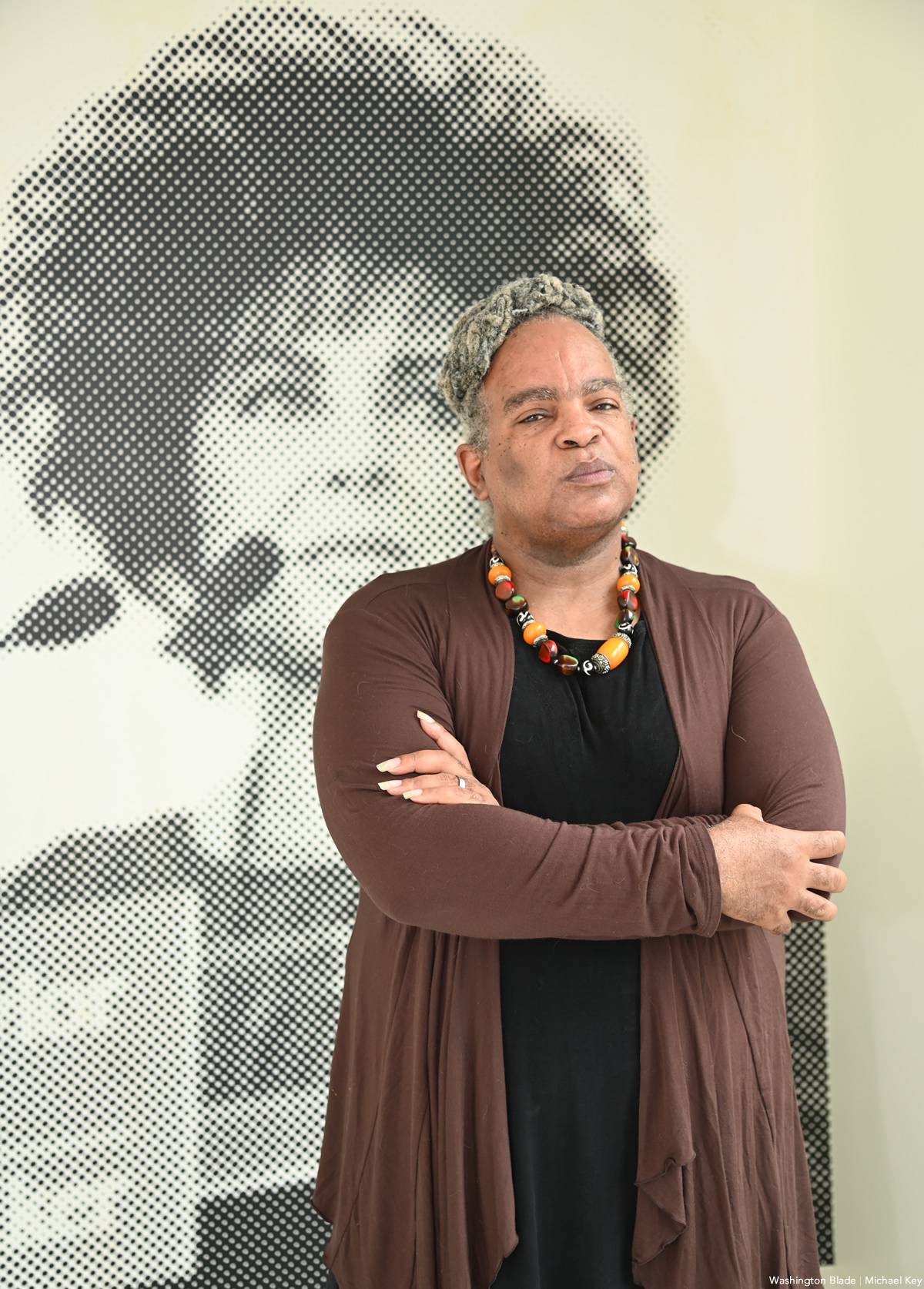
Sports
US wins Olympic gold medal in women’s hockey
Team captain Hilary Knight proposed to girlfriend on Wednesday

The U.S. women’s hockey team on Thursday won a gold medal at the Milan Cortina Winter Olympics.
Team USA defeated Canada 2-1 in overtime. The game took place a day after Team USA captain Hilary Knight proposed to her girlfriend, Brittany Bowe, an Olympic speed skater.
Cayla Barnes and Alex Carpenter — Knight’s teammates — are also LGBTQ. They are among the more than 40 openly LGBTQ athletes who are competing in the games.
The Olympics will end on Sunday.
Movies
Radical reframing highlights the ‘Wuthering’ highs and lows of a classic
Emerald Fennell’s cinematic vision elicits strong reactions

If you’re a fan of “Wuthering Heights” — Emily Brontë’s oft-filmed 1847 novel about a doomed romance on the Yorkshire moors — it’s a given you’re going to have opinions about any new adaptation that comes along, but in the case of filmmaker Emerald Fennell’s new cinematic vision of this venerable classic, they’re probably going to be strong ones.
It’s nothing new, really. Brontë’s book has elicited controversy since its first publication, when it sparked outrage among Victorian readers over its tragic tale of thwarted lovers locked into an obsessive quest for revenge against each other, and has continued to shock generations of readers with its depictions of emotional cruelty and violent abuse, its dysfunctional relationships, and its grim portrait of a deeply-embedded class structure which perpetuates misery at every level of the social hierarchy.
It’s no wonder, then, that Fennell’s adaptation — a true “fangirl” appreciation project distinguished by the radical sensibilities which the third-time director brings to the mix — has become a flash point for social commentators whose main exposure to the tale has been flavored by decades of watered-down, romanticized “reinventions,” almost all of which omit large portions of the novel to selectively shape what’s left into a period tearjerker about star-crossed love, often distancing themselves from the raw emotional core of the story by adhering to generic tropes of “gothic romance” and rarely doing justice to the complexity of its characters — or, for that matter, its author’s deeper intentions.
Fennell’s version doesn’t exactly break that pattern; she, too, elides much of the novel’s sprawling plot to focus on the twisted entanglement between Catherine Earnshaw (Margot Robbie), daughter of the now-impoverished master of the titular estate (Martin Clunes), and Heathcliff (Jacob Elordi), a lowborn child of unknown background origin that has been “adopted” by her father as a servant in the household. Both subjected to the whims of the elder Earnshaw’s violent temper, they form a bond of mutual support in childhood which evolves, as they come of age, into something more; yet regardless of her feelings for him, Cathy — whose future status and security are at risk — chooses to marry Edgar Linton (Shazad Latif), the financially secure new owner of a neighboring estate. Heathcliff, devastated by her betrayal, leaves for parts unknown, only to return a few years later with a mysteriously-obtained fortune. Imposing himself into Cathy’s comfortable-but-joyless matrimony, he rekindles their now-forbidden passion and they become entwined in a torrid affair — even as he openly courts Linton’s naive ward Isabella (Alison Oliver) and plots to destroy the entire household from within. One might almost say that these two are the poster couple for the phrase “it’s complicated.” and it’s probably needless to say things don’t go well for anybody involved.
While there is more than enough material in “Wuthering Heights” that might easily be labeled as “problematic” in our contemporary judgments — like the fact that it’s a love story between two childhood friends, essentially raised as siblings, which becomes codependent and poisons every other relationship in their lives — the controversy over Fennell’s version has coalesced less around the content than her casting choices. When the project was announced, she drew criticism over the decision to cast Robbie (who also produced the film) opposite the younger Elordi. In the end, the casting works — though the age gap might be mildly distracting for some, both actors deliver superb performances, and the chemistry they exude soon renders it irrelevant.
Another controversy, however, is less easily dispelled. Though we never learn his true ethnic background, Brontë’s original text describes Heathcliff as having the appearance of “a dark-skinned gipsy” with “black fire” in his eyes; the character has typically been played by distinctly “Anglo” men, and consequently, many modern observers have expressed disappointment (and in some cases, full-blown outrage) over Fennel’s choice to use Elordi instead of putting an actor of color for the part, especially given the contemporary filter which she clearly chose for her interpretation for the novel.
In fact, it’s that modernized perspective — a view of history informed by social criticism, economic politics, feminist insight, and a sexual candor that would have shocked the prim Victorian readers of Brontë’s novel — that turns Fennell’s visually striking adaptation into more than just a comfortably romanticized period costume drama. From her very opening scene — a public hanging in the village where the death throes of the dangling body elicit lurid glee from the eagerly-gathered crowd — she makes it oppressively clear that the 18th-century was not a pleasant time to live; the brutality of the era is a primal force in her vision of the story, from the harrowing abuse that forges its lovers’ codependent bond, to the rigidly maintained class structure that compels even those in the higher echelons — especially women — into a kind of slavery to the system, to the inequities that fuel disloyalty among the vulnerable simply to preserve their own tenuous place in the hierarchy. It’s a battle for survival, if not of the fittest then of the most ruthless.
At the same time, she applies a distinctly 21st-century attitude of “sex-positivity” to evoke the appeal of carnality, not just for its own sake but as a taste of freedom; she even uses it to reframe Heathcliff’s cruel torment of Isabella by implying a consensual dom/sub relationship between them, offering a fragment of agency to a character typically relegated to the role of victim. Most crucially, of course, it permits Fennell to openly depict the sexuality of Cathy and Heathcliff as an experience of transgressive joy — albeit a tormented one — made perhaps even more irresistible (for them and for us) by the sense of rebellion that comes along with it.
Finally, while this “Wuthering Heights” may not have been the one to finally allow Heathcliff’s ambiguous racial identity to come to the forefront, Fennell does employ some “color-blind” casting — Latif is mixed-race (white and Pakistani) and Hong Chau, understated but profound in the crucial role of Nelly, Cathy’s longtime “paid companion,” is of Vietnamese descent — to illuminate the added pressures of being an “other” in a world weighted in favor of sameness.
Does all this contemporary hindsight into the fabric of Brontë’s epic novel make for a quintessential “Wuthering Heights?” Even allowing that such a thing were possible, probably not. While it presents a stylishly crafted and thrillingly cinematic take on this complex classic, richly enhanced by a superb and adventurous cast, it’s not likely to satisfy anyone looking for a faithful rendition, nor does it reveal a new angle from which the “romance” at its center looks anything other than toxic — indeed, it almost fetishizes the dysfunction. Even without the thorny debate around Heathcliff’s racial identity, there’s plenty here to prompt purists and revisionists alike to find fault with Fennell’s approach.
Yet for those looking for a new window into to this perennial classic, and who are comfortable with the radical flourish for which Fennell is already known, it’s an engrossing and intellectually stimulating exploration of this iconic story in a way that exchanges comfortable familiarity for unpredictable chaos — and for cinema fans, that’s more than enough reason to give “Wuthering Heights” a chance.
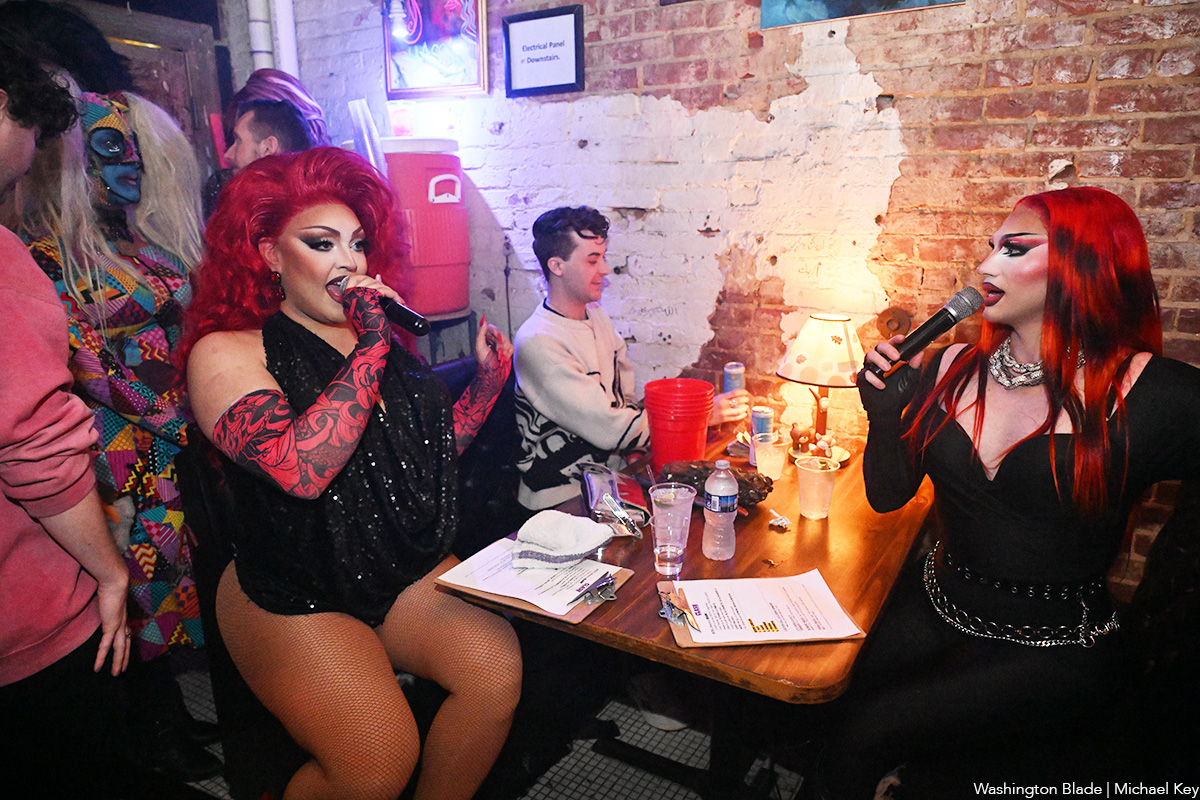
Crimsyn and Tatianna hosted the new weekly drag show Clash at Trade (1410 14th Street, N.W.) on Feb. 14, 2026. Performers included Aave, Crimsyn, Desiree Dik, and Tatianna.
(Washington Blade photos by Michael Key)
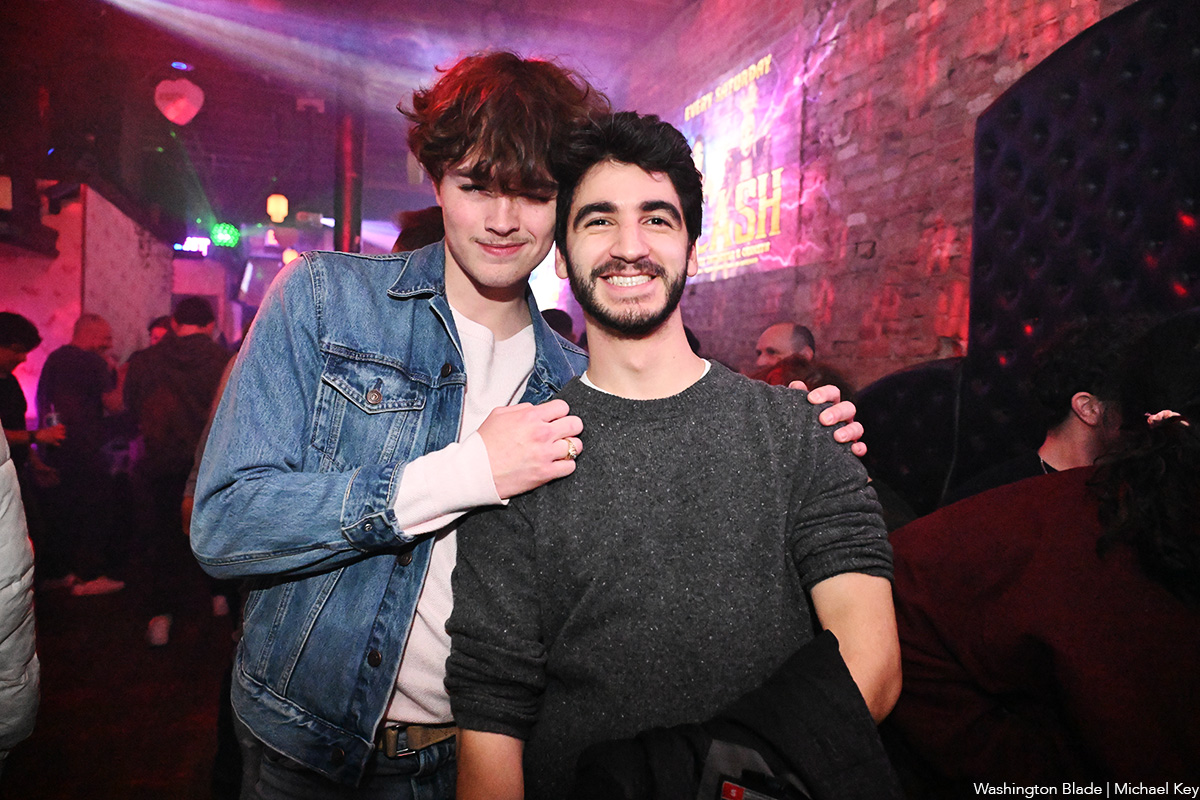
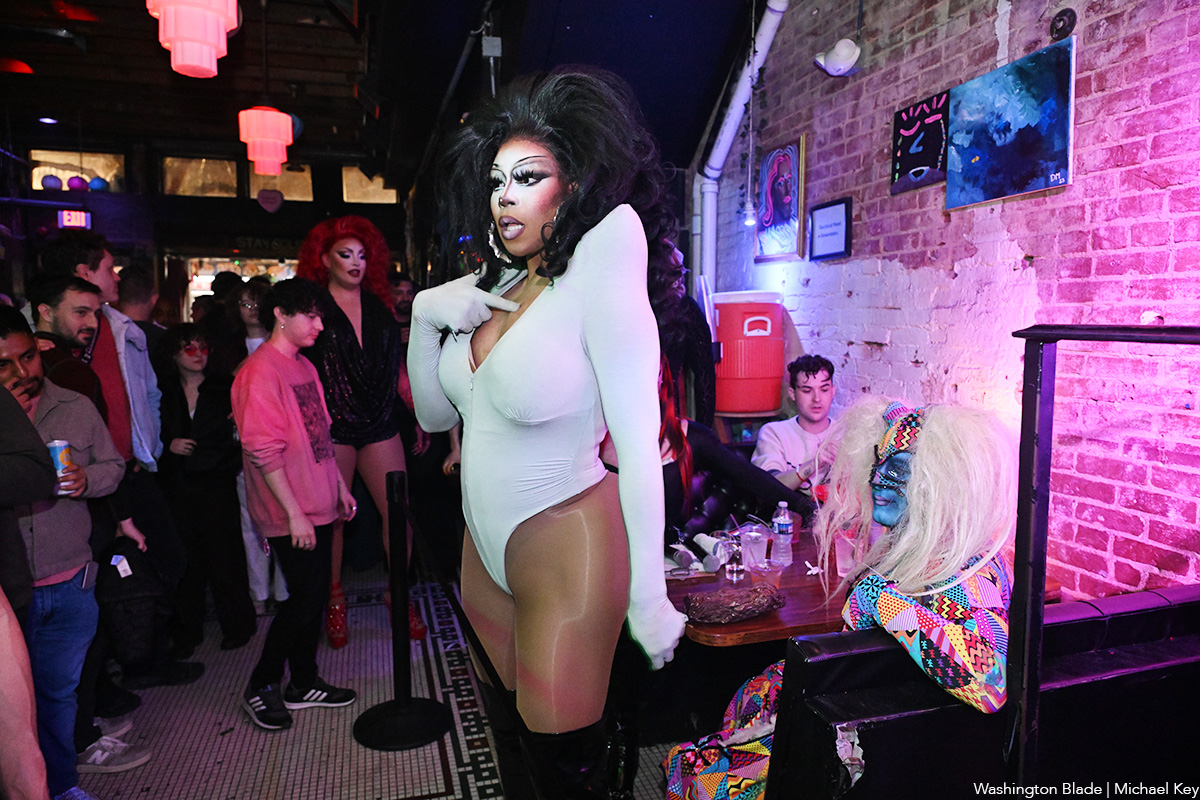
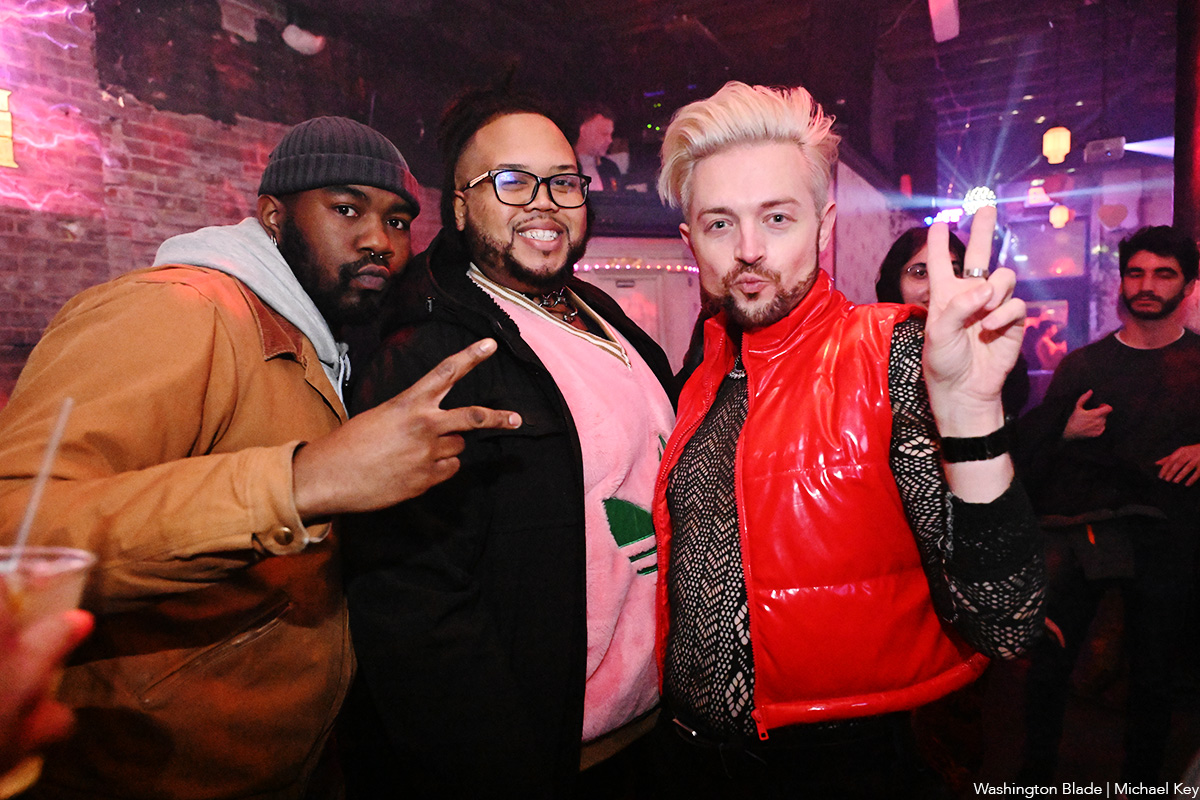
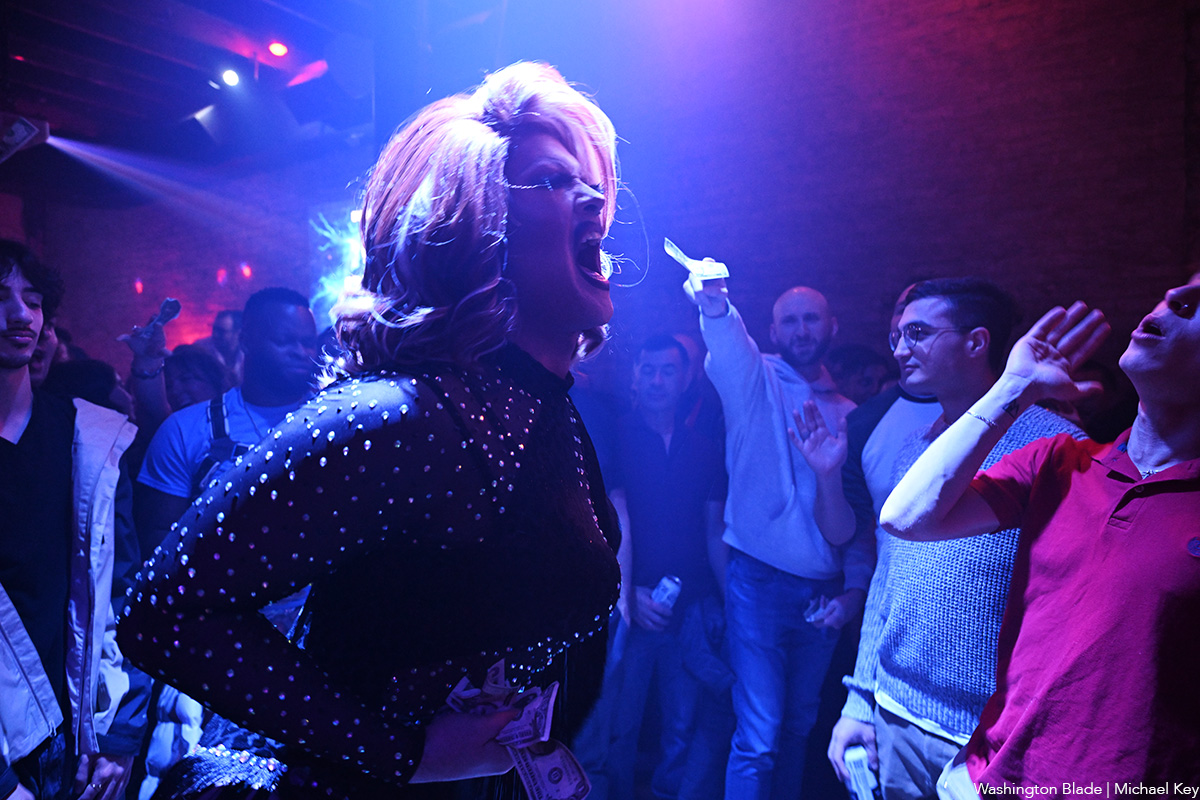

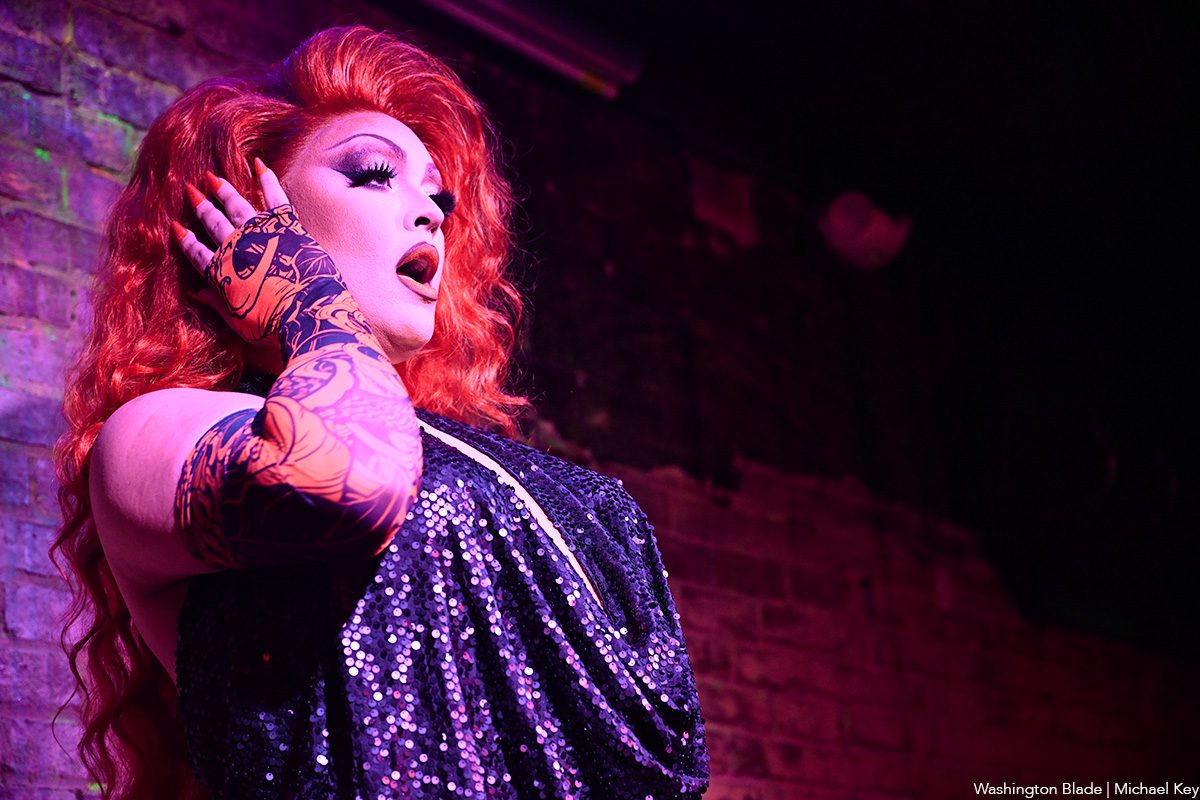
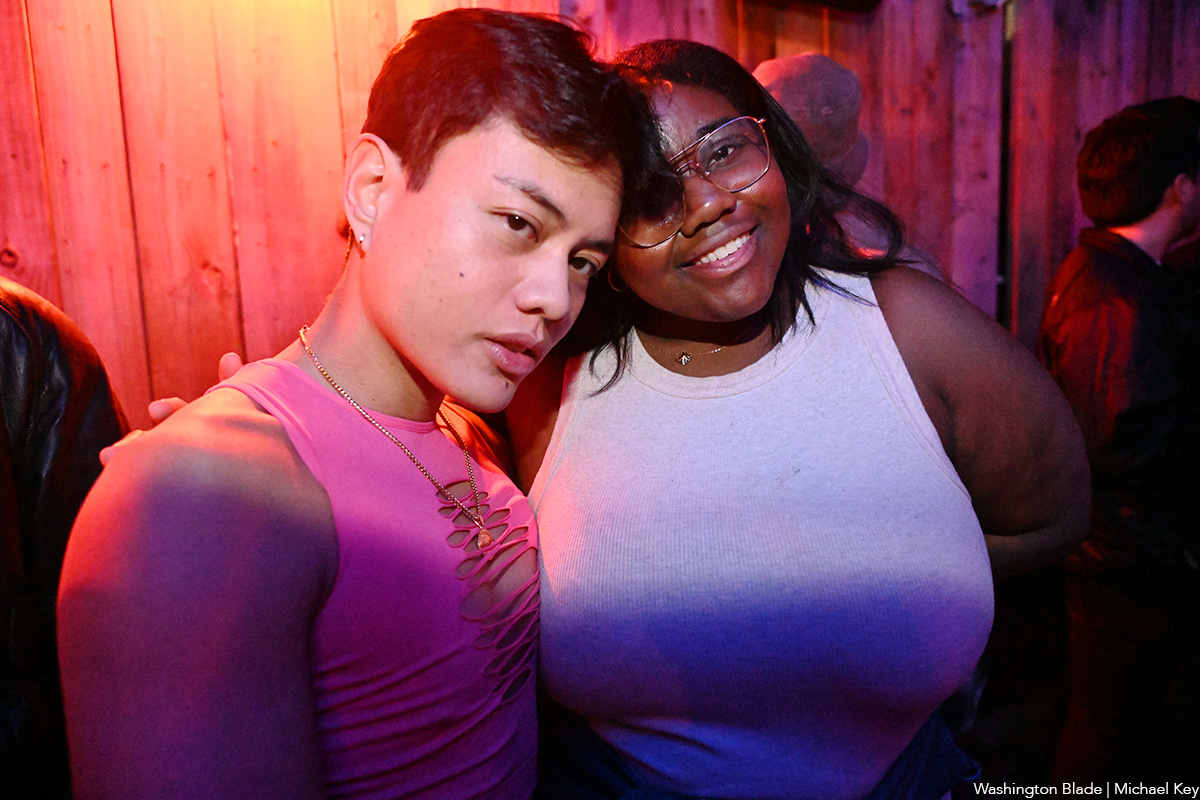
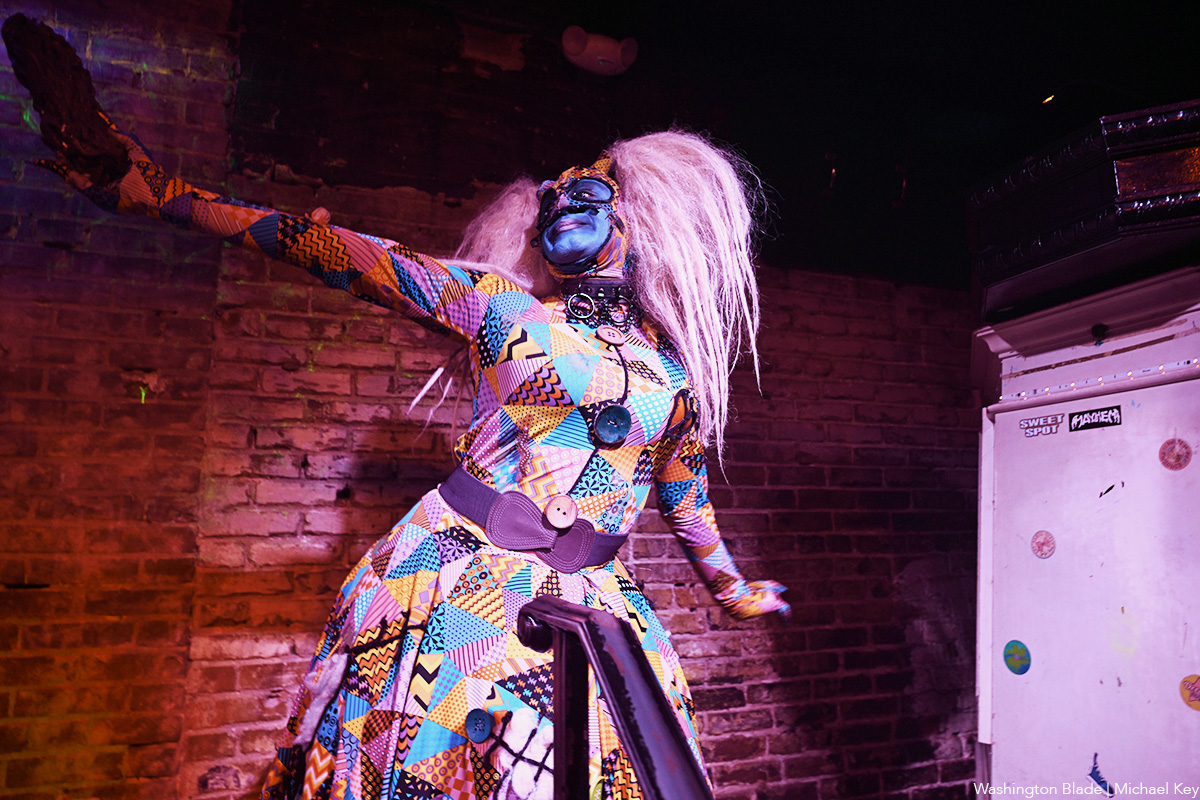
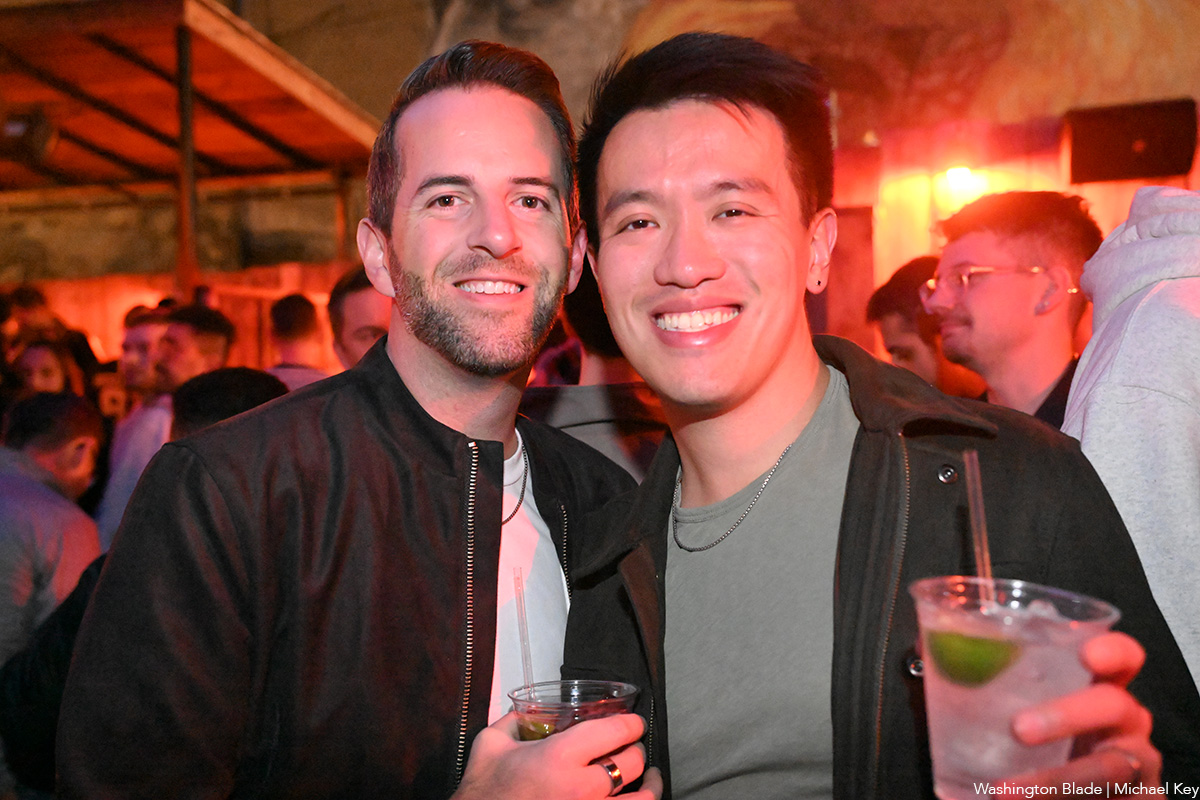

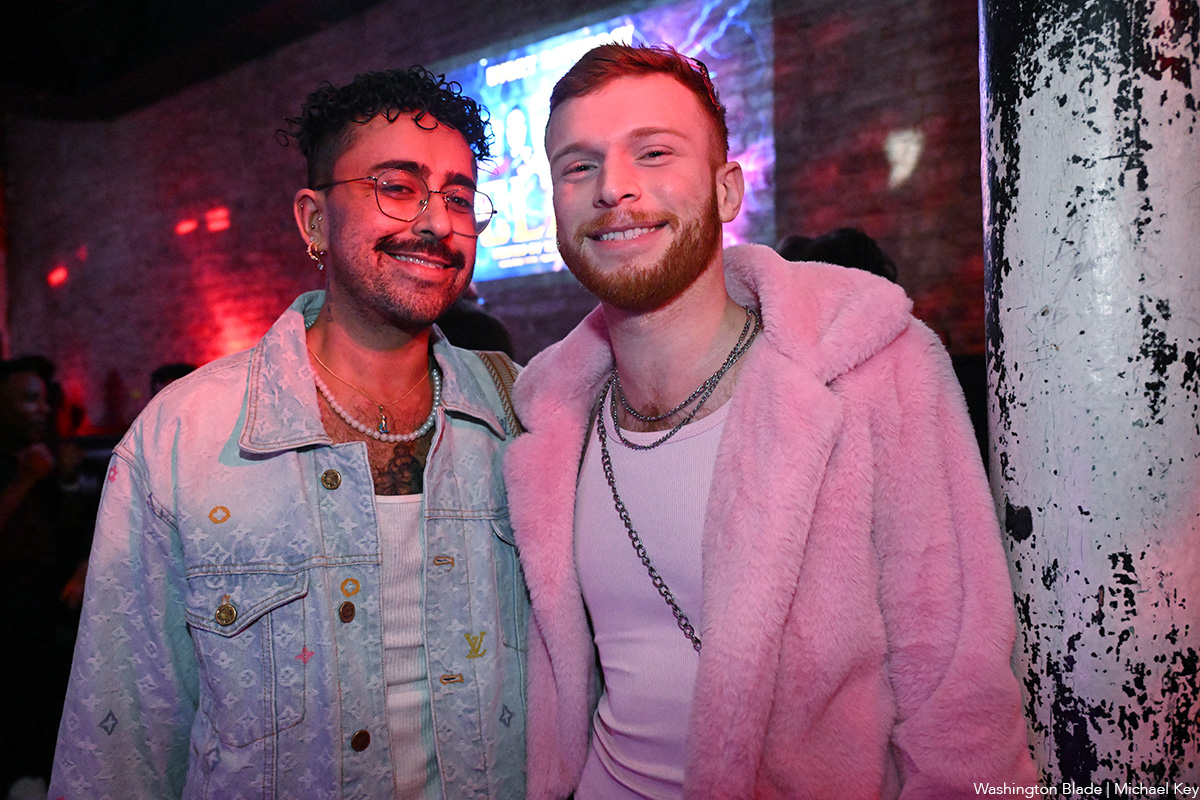
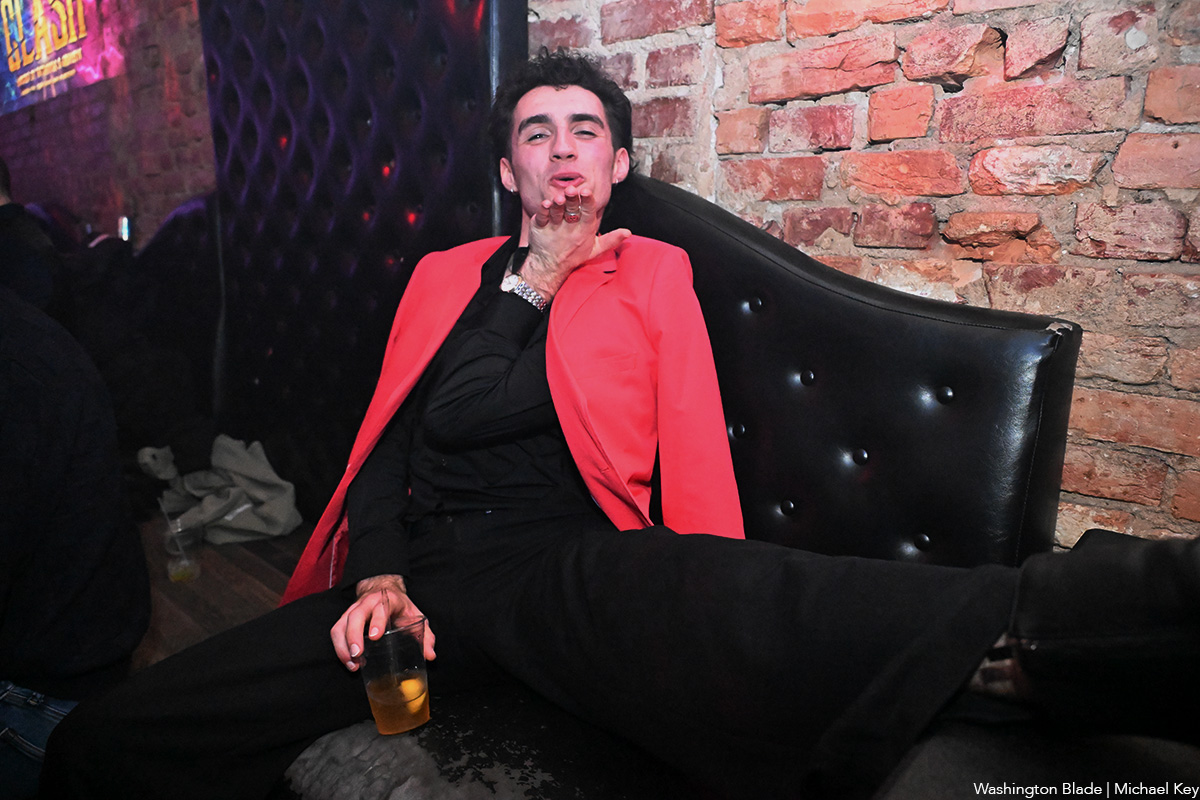
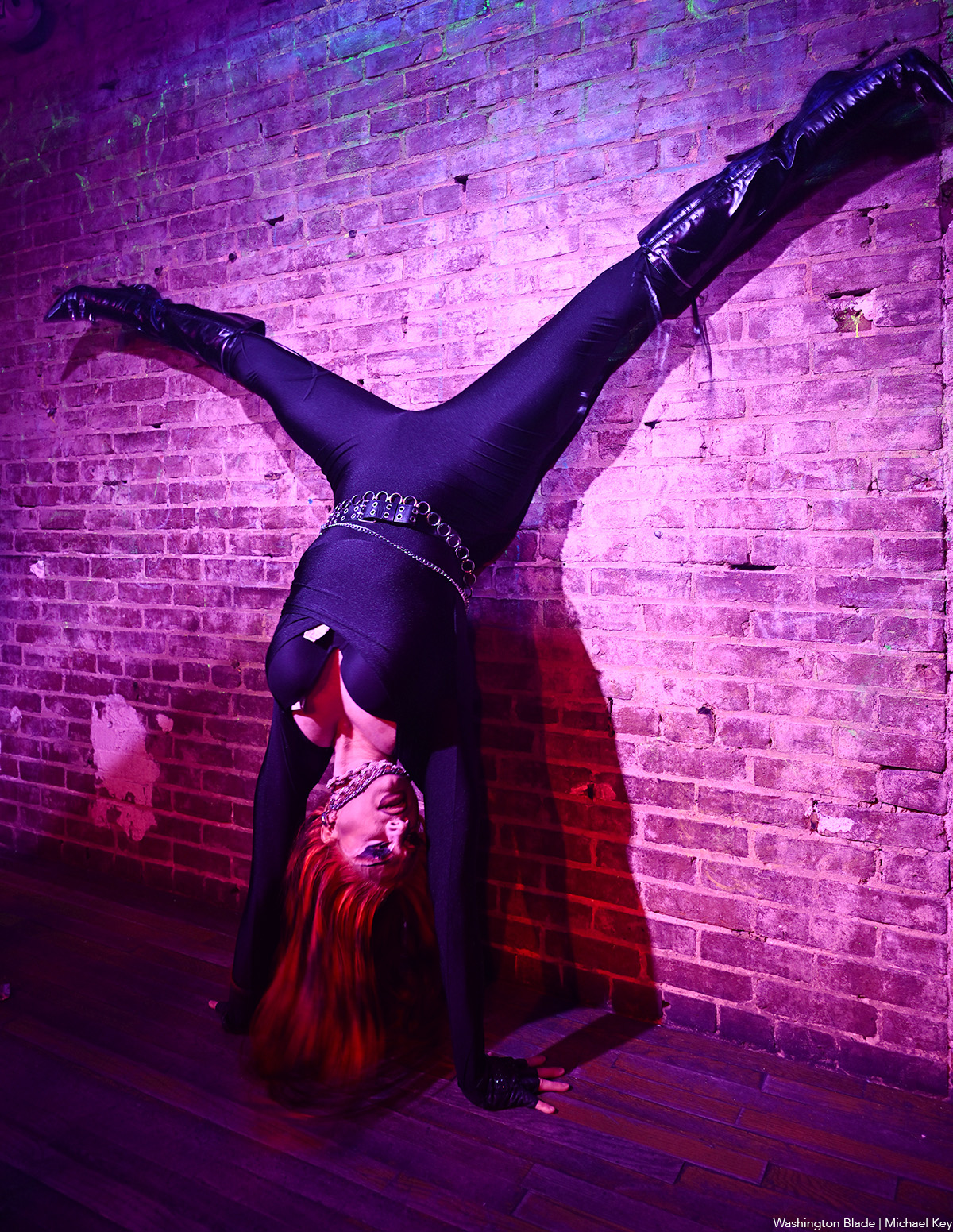
-

 Baltimore3 days ago
Baltimore3 days ago‘Heated Rivalry’ fandom exposes LGBTQ divide in Baltimore
-

 Real Estate3 days ago
Real Estate3 days agoHome is where the heart is
-

 District of Columbia3 days ago
District of Columbia3 days agoDeon Jones speaks about D.C. Department of Corrections bias lawsuit settlement
-

 European Union3 days ago
European Union3 days agoEuropean Parliament resolution backs ‘full recognition of trans women as women’




















